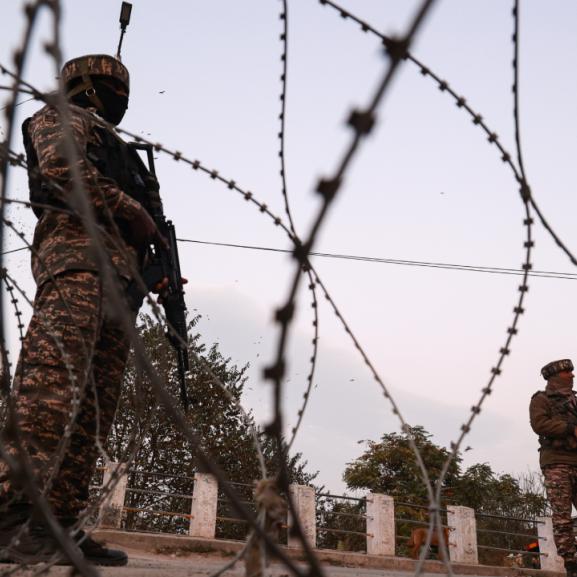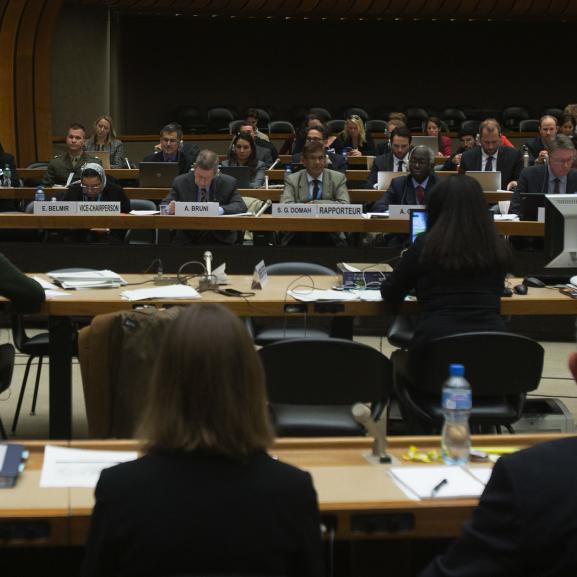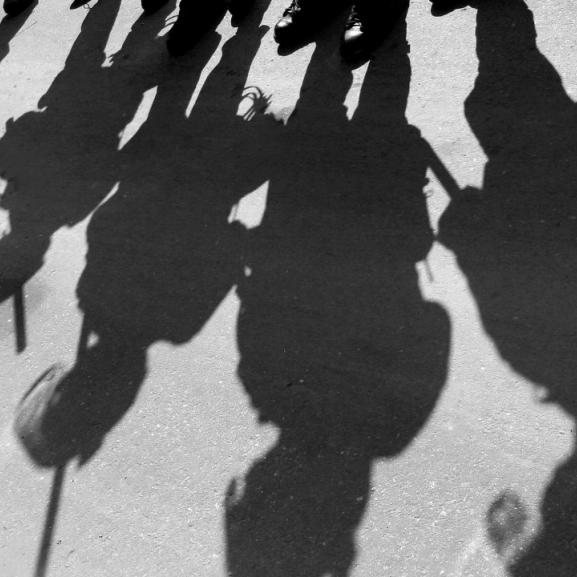What is Waterboarding?
Waterboarding is a form of torture prohibited under international law. Learn its definition, history, and why Freedom from Torture stands firmly against it.
What is waterboarding?
Waterboarding is a method of torture that is absolutely prohibited by international human rights law and has been denounced through the ages. Waterboarding involves simulating the sense of drowning. A person is strapped to a board, often upside down, with their mouth gagged by a cloth. Streams of water are then poured over the face, causing near suffocation.
Torture, including waterboarding, creates a sense of panic that can stay with survivors for months, years and even a lifetime. The act is re-lived in survivors’ minds with inescapable intensity, prompting flashbacks and anxiety about a total loss of control and imminent death.
What does the law say about waterboarding?
Torture is not only immoral and ineffective, but it is also illegal. It is simply wrong. That’s why more than 170 states, including the USA and UK, have signed the United Nations Convention Against Torture. The international community and law could not be clearer in their opposition to torture – and waterboarding is no exception.
Despite this, countries like the USA are at risk of sending a green light to torturers around the world. In the lead up to his first presidency, Donald Trump praised waterboarding and other banned interrogation methods that amount to torture.
In the face of an outcry over his administration's recourse to such horrific abuses in the post 9/11 years, US President George W. Bush unashamedly maintained that the US is a defender of human rights. But this claim was severely discredited by the US’s use of torture carried out in the name of the 'War on Terror'. Human rights are about protecting individuals. Torture is about shattering lives. The two do not equate – decades of history and survivors of torture are living proof of that.
The history of waterboarding
The terminology of ‘waterboarding’ may be relatively new, but the technique is not – the Spanish Inquisition referred to it as the ‘toca’, the Japanese in the 1940s and called it the ‘water cure’, the Algerians in the 1950s called it ‘chiffon’, and in South America in the 1980s it was known as ‘submarino’.
During its ‘War on Terror’, the USA’s use of waterboarding was part of the agency’s extensive use of torture that is well-documented. The CIA openly admitted that waterboarding has been used on at least four individuals since 2001. Around the same time, the US Justice Department's Office of Legal Counsel was issuing memos that explicitly sanctioned the use of aggressive tactics, on the premise that the president's constitutional duty to protect the nation trumped international law in wartime.
Illegitimate efforts were made within the US to redefine what was classed as torture to the point where anything except death, organ failure or the permanent impairment of a significant bodily function was permissible.
Join a movement of more than 170,000 people
The devastating impact of waterboarding on survivors
Every day our clinicians at Freedom from Torture see first-hand how torture is used to silence people and destroy lives. Survivors often describe waterboarding as leaving long-term scars – both physically and mentally.
Dr William Hopkins, a clinician at Freedom from Torture, describes waterboarding as torture in the extreme: "The victim's fear of drowning links with their most primal instinct for survival. The immediate response is to panic as the human reflexes struggle against an inability to breathe. The instinct is to try to escape while at the same time being crushed by the sense that it is futile to try to do so.
"It leaves people helpless and unable to control an overwhelming sense of fear. They are convinced they are dying, and the lack of oxygen to their brain disables the emotional ability to cope.
"It is a particularly vile experience because of the power the torturer holds over the victim. The torturer creates the anticipatory fear that next time, they will not stop until the victim is dead. No doubt this is what those experiencing waterboarding are told as torture never occurs in isolation – the physical suffering is always accompanied by psychological manipulation."
Dr Hopkins adds: "Given what we know from thousands of survivors seen by Freedom from Torture over the past four decades, waterboarding – like every other method of torture used – dehumanises the individual and cripples their emotional and physical capacities."
Why standing against waterboarding matters today
In 2017, during his first TV interview as US president, Donald Trump said that ‘waterboarding absolutely works’. He had also said that he wants to bring back waterboarding ‘and a hell of a lot worse’.
In his first presidency, he also promoted Gina Haspel – who oversaw the CIA's torture programme after 9/11 – to the Director of the CIA. With Trump returning as president, we can’t risk countries like the USA and UK becoming complicit or silent when it comes to waterboarding and other methods of torture.
We need the UK government to show that torture is never acceptable and that we won't look the other way when leaders commit or enable torture.






